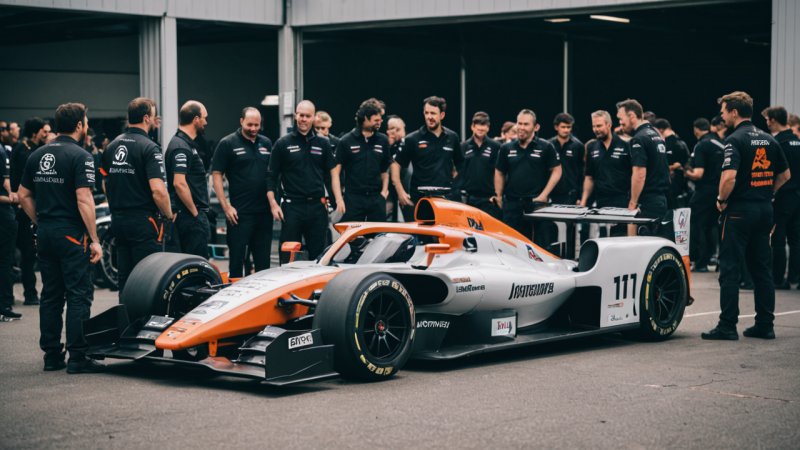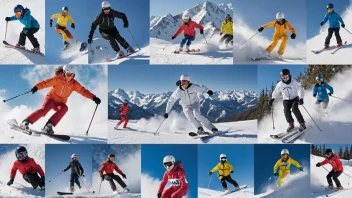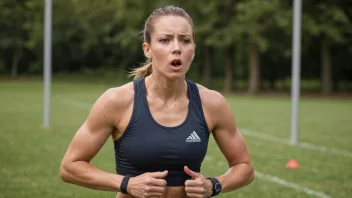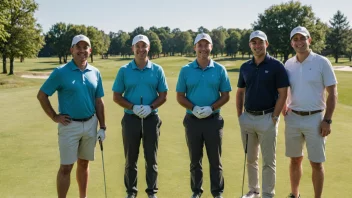In the high-octane world of motorsports, where every millisecond counts and the stakes are incredibly high, teamwork emerges as a fundamental pillar of success. While the image of a lone driver speeding around a track often dominates the narrative, the truth is that behind every successful racer lies a dedicated team of professionals working tirelessly to ensure optimal performance. From engineers tweaking the car's aerodynamics to pit crews executing flawless tire changes, the intricate web of collaboration is what transforms individual talent into collective triumph. This article delves into the various facets of teamwork in motorsports, exploring its significance, the roles played by different team members, and how effective collaboration leads to championship victories.
The Dynamics of a Motorsport Team
The structure of a motorsport team is multifaceted, with each member contributing specialized skills that intersect to create a cohesive unit. In this section, we will break down the key roles within a typical motorsport team and their contributions to overall success.
Team Principal
The Team Principal is responsible for the overall management and strategic direction of the team. This role involves making critical decisions regarding driver contracts, budgeting, and long-term planning. The Team Principal acts as a bridge between the technical staff and the drivers, ensuring that everyone is aligned towards common goals.
Engineers and Designers
Engineers and designers are crucial in shaping the vehicle's performance. They analyze data, design components, and innovate solutions to improve speed, handling, and safety. Their understanding of physics and engineering principles allows them to optimize the car's setup for specific tracks and conditions.
Mechanics and Pit Crew
The mechanics and pit crew are the unsung heroes of any motorsport team. During races, they execute rapid tire changes and repairs with precision. Their ability to work under pressure and communicate effectively is vital for minimizing downtime during pit stops, which can make or break a race.
Drivers
While drivers often receive the lion's share of the spotlight, their success is inextricably linked to the team's collective efforts. A driver's skill behind the wheel is enhanced by the support of their team, including feedback on car performance and strategic decisions regarding race tactics.
The Role of Communication in Teamwork
Effective communication is the linchpin of successful teamwork in motorsports. With the intense and fast-paced nature of racing, clear and concise communication can mean the difference between victory and defeat. Here are some key aspects of communication that play a vital role in motorsport teamwork:
Pre-Race Briefings
Before each race, teams hold briefings to discuss strategy, potential challenges, and the car's setup. This collaborative environment allows team members to voice concerns, share insights, and align their objectives.
In-Race Communication
During the race, drivers rely on real-time communication with their engineers and strategists. Teams utilize radio systems to convey crucial information, such as tire conditions, competitor strategies, and updates on weather changes. This two-way communication is essential for making split-second decisions that can impact race outcomes.
Post-Race Analysis
After the race, teams conduct debriefings to analyze performance, discuss what went well, and identify areas for improvement. This reflective practice fosters a culture of continuous improvement, helping teams to grow stronger with each event.
Building Trust and Cohesion Among Team Members
At the core of effective teamwork is trust. In an environment where every decision carries significant consequences, team members must feel confident in each other's capabilities. Here are some strategies that teams employ to build trust and cohesion:
Team-Building Activities
Engaging in team-building activities outside of the racing environment helps foster relationships and camaraderie. These activities can range from off-site retreats to competitive events that challenge team members to work together toward a common goal.
Shared Goals and Values
Having a clear understanding of the team's goals and values reinforces unity. When every member knows the objectives and believes in the team's mission, it creates a strong foundation for collaboration.
Open Feedback Culture
Creating an environment where team members can provide and receive constructive feedback encourages growth and improvement. Open lines of communication allow individuals to express concerns, share ideas, and contribute to the team's overall success.
The Impact of Technology on Teamwork
Advancements in technology have revolutionized the way motorsport teams operate. From data analytics to communication tools, technology enhances the team's ability to collaborate effectively. This section explores how technology influences teamwork in motorsports:
Data Analytics
Data analytics plays a pivotal role in motorsports, providing teams with insights into performance metrics and competitor strategies. By analyzing vast amounts of data collected during practice sessions and races, teams can make informed decisions that enhance performance. This data-driven approach requires seamless collaboration between drivers, engineers, and strategists.
Real-Time Telemetry
Real-time telemetry systems allow teams to monitor the car's performance during the race. Engineers can analyze data on tire temperature, fuel levels, and engine performance, enabling them to communicate adjustments and strategies to the driver instantly. This real-time feedback loop exemplifies how technology facilitates teamwork.
Collaboration Tools
Modern collaboration tools enable teams to communicate and share information efficiently, both on and off the track. From project management software to video conferencing platforms, these tools help streamline workflows and enhance collaboration among team members, regardless of their physical location.
Case Studies: Successful Teams and Their Collaborative Practices
Examining successful motorsport teams provides valuable insights into how teamwork contributes to their achievements. Here, we highlight a few notable examples:
Mercedes-AMG Petronas Formula One Team
The dominance of the Mercedes-AMG Petronas Formula One Team in recent years can be attributed to their exceptional teamwork. Their focus on data-driven decision-making, combined with a strong culture of trust and open communication, has allowed them to consistently outperform competitors.
Team Penske in NASCAR
Team Penske has a rich history of success in NASCAR, thanks in part to their collaborative approach. They prioritize building relationships among drivers, engineers, and crew members, fostering an environment where everyone feels valued and empowered to contribute their expertise.
Red Bull Racing
Red Bull Racing's innovative approach to teamwork sets them apart in the motorsport world. Their emphasis on creativity and problem-solving encourages team members to think outside the box, leading to groundbreaking strategies that often catch competitors off guard.
Conclusion
In conclusion, teamwork is an indispensable element of motorsport success. From the strategic planning stages to the adrenaline-fueled moments of the race, every individual on a motorsport team plays a vital role in achieving victory. Effective communication, trust, and the integration of technology are key components that enable teams to function cohesively. As the motorsport landscape continues to evolve, the importance of teamwork remains unwavering, reminding us that in this thrilling arena, no one can succeed alone.






